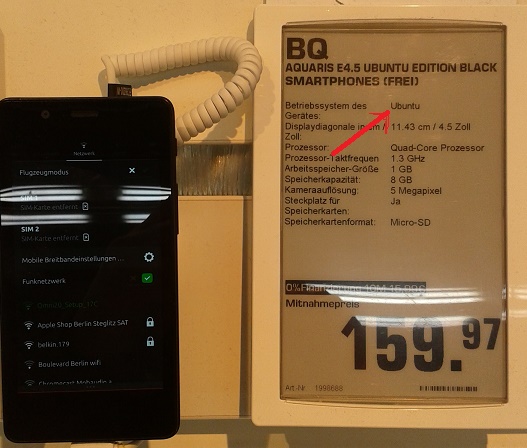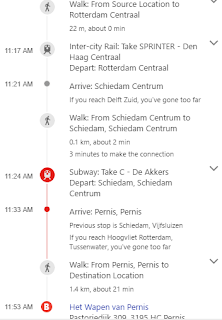Week 40
Let's hope the final analysis is right. What does that mean for the policy maker? Well, maybe not "going to the people" for every damn decision that needs to be made, holding steady, and doing their job. In Columbia areas effected with FARC terrorism voted for the FARC deal, the ones not effected did not (deal was rejected). Was it a good idea to ask the voters about this deal? Or about Brexit which the old voted for more than the young, but it is a question about the "future" which the old has little of?
It seems to me we either have full democracy where decisions are made by people who are closest to the issue, demographically, regionally. etc. OR we have the current elite driven system where rulers do what they sign up to do, and don't bother people with unnecessary questions (unless it is something that concerns all). We can't have a little of both. Especially using people as a rubberstamp for decisions, or arbitrator for internal party feuds is the shortest way to fail.
\o/
"The Paris Climate Agreement Is Now Official.. World leaders agreed in December to adopt plans to address planet-warming emissions, an attempt to slow the catastrophic effects of climate change. But signatories still needed to go back to their countries and ratify the deal — a necessary step that was achieved on Wednesday.
The agreement, which seeks to limit global temperature rise to no more than 2 degrees Celsius (3.6 degrees Fahrenheit), couldn’t take effect until at least 55 countries responsible for more than 55 percent of global greenhouse emissions formally adopted it. The European Union’s ratification on Tuesday bumped up participation to the necessary threshold. By Wednesday, 73 countries had ratified the agreement, accounting for nearly 57 percent of emissions"
In explaining the course of history, scholars like to look not only at immediate causes of an event, but the underlying trends that made it possible, if not inevitable. The assassination of Austrian Archduke Ferdinand in Sarajevo in 1914 may have sparked World War I, but the conflagration was the expression of longstanding geopolitical rivalries [..].
On their own, the EU’s failures need not have necessitated a vote to Leave. Despite these developments, there were strong arguments for staying in the EU. One could, on balance, decide that the good outweighed the bad, that the EU could be reformed, that the economic benefits of staying were not worth the political advantages of leaving [..].
But that would require knowledge of the positive case for staying. And over many years, the British public were treated to nothing but the negative: story after story — many exaggerated, some invented, others all too true — of the EU’s failings. Nobody in power spoke of the positive things Europe provided. There was no counter narrative, and there hadn’t been since the 1975 referendum to join the EU [..].
[T]he government never laid the ground for a pro-EU referendum, despite numerous examples of Britain’s ability to sway European policy. We put forward proposals that blazed the trail for a digital single market and the Energy Union that eventually became the EU’s response to Russia’s invasion of Crimea. And we rescued the Commission’s efforts to end mobile telephone roaming charges and pushed hard on improving airline safety. A Business Task Force with six prominent British businesspeople looked at all the EU regulations that should be scrapped — and managed to get two-thirds of their recommendations implemented within a year.
But Cameron never turned these victories into high politics. He preferred highlighting achievements he knew would play well in the House of Commons — vetoing changes to the Lisbon Treaty, capping the EU’s budget, ensuring that the U.K. would not be liable for eurozone bailouts. These invariably portrayed him as defending the U.K. from the EU’s encroachments. We did not weave similar stories to show how EU membership helped the U.K.
[Liquid food company Soylent founder Rob Rhinehart's] latest project is building a home in Los Angeles, off the grid. This is surprisingly possible in one of the world’s most urban environments. He found disused land in an unfashionable part of town and plonked a shipping container in it, which he now lives in. This might be eccentric but it’s not a millionaire’s whimsy. The land was cheap because it is not served by electricity or water; the shipping container was $1,500. [..] The container’s power is solar-generated. Of course there is no need for a kitchen. Rhinehart is currently relying on a “Porta Potty” but has hopes for advances in new toilets that vaporise waste.
Nice
I'd love to try this out: buy cheap land and put a shipping container on it. This guy did solar & battery combo for ~10000 Eur (I looked at Powerwall, the web page needs some work, I wanna see a moderate price for moderate use right away, instead you are shown prices ranging from 100K to millions for probably heavy industrial use).
There were some advances in portable toilets, (thanks to Bill G). One that is available today, here.
Shower with recyclable water.
Patch of land around Berlin area 10 shipping containers wide ~60K Eur,
Living unconnected to the grid, without getting f**ing bills everyday seems to be possible. I loathe excessive bureaucratization, and it seems we built a lot of unnecessary bureaucracy around the simple act of living. Even paying rent, while simple, seems like money down the drain. Time to cut the cord?
Question
But don't we need connectivity?
To what? How?
Humans are built for intermittent connectivity, not constant connectivity. Yes there is the concept of six-degrees-of-seperation (where any person in the world is related to another by less than six hops of friendship/kinship) - but the interesting thing about that is not that "we are all connected", it is that relatedness is possible even in a network as sparsely connected as ours. In nature, small-world networks occur a lot, and artificially building one on your own is instructive on how all these things really work: you take a fully connected graph, and start randomly breaking off connections.
The version control system Git and Github are all built around the concept of intermittent connections.
There are two formulas that model human population growth, one is Malthusian, the other Logistic. In order to reach the better / latter one, you simply add a "death rate" that is proportional to the connections between N people meaning that more connections, more denseness creates conflicts, probably while sharing limited, shared resources, and ultimately death.
(This does not mean collaboration is bad - that can happen in asynchronous fashion).
Question
What do you want out of your smartphone
A Better OS
[geek] I'd like to be able to login to my smartphone through command-line tools such as ssh and find well-known Unix tools and libraries there. OpenCV, Python should be available, instalable out-of-the-box. There is Ubuntu Touch which aims at this, that could be my next try. It would be nice being able to program a phone without getting into f--ing Java, or go through layers of obnoxious OS [/geek].
It was nice to have Android, the alternative would have been iOS everywhere which in technical quality terms is the very definition of Armageddon. But, say, Android on Samsung is also a no-go, similar apps are fighting on the phone to do the same thing (do you want to use this or that app to view a web page? just open the effin page). Plus the battery is heating up, so this OS/phone combo sucks.
I believe such a simple OS that manages power well, and programmer-friendly at the same time will happen. Right now a student in Finland might be sitting at his desk, he wants to do things with a smartphone he just bought. This student, Finus Forvalds, will transport / write / re-write parts of Unix to first make a call on this phone, then access its camera, then all its devices. He will publish first version on some group, chatroom and we will have an easy-to-use smartphone OS Finux.
[Paraphrasing] IoT will encompass everything in its wake, it will be the new revolution..
Maybe
IoT (the internet of things, internetworking of physical devices) gets a lot of media attention... Everytime I look at this thing though waiting to learn something new, I come out thinking "huh?". Whatchamadingle? Whowhawhy?
I believe a lot of the "buzz" on IoT is coming from established IT companies; but they are looking at this all backwards - they just want to some kind of data stream to come to them. Then they think, well, who / what can generate me this data? Ah, I found it; people's toasters, refrigerators and shit will send me that, I'll take that, do some processin', and send it back.
But why would I need to send my f**ing toaster data to you? This is not to say that there is no benefit of having every device compatible with internet protocol, so known tools can connect to them over LAN. But my toaster over the Internet? That makes no sense. In fact it is a huge security clusterflunk waiting to happen.
Needless to say, companies who are hungriest on this type of IoT are also the ones who missed out on that fat "social data" i.e. the the kind that comes out of Facebook users. Microsoft for example. I am not pointing any fingers, MS did some good things as of late.
So: if IoT means accessible / programmable devices, great. But do we need an army of management consultants with their Powerpoint presentations with turtleck sweaters to tell us that?
Question
What is [Phillipine's new President] Duterte's [who regularly boasts he will kill as many "bad people" as he wants without due process] psychology type?
Take A Wild Guess
Question
Control Freak?
Bingo
He is also most likely an ESTP, this type usually confuses being obnoxious with being innovative or being "out of the ordinary", "rebellious". Their thirst for the near immediate, the shiny rearranges all their priorities demoting their thinking process to the level of amoeba. You can kiss good-bye to any chance of a statesman, rounded politician showing up. All that combined with a Control Freak? Bad news.
Good news! We saved #CETA. Europe shld learn from this: take the citizens' concerns on board [..]
Citizens?
You mean national parliaments, trade unions, etc? These are not "people" - they are representative bodies, interest groups. Guy on the street does not know nor care about the details of CETA, TTIP - in Germany main opposition to parts of TTIP deal came from the mittelstand, small businesses which are a powerful interest group. Interest groups know intricate details of such deals because it effects them. But "people" voted on Brexit without knowing all the details - who the hell do some naive politicians think these "people" are? Dude with a top hat and a pipe in his hand, he takes a drag, and goes "well dear chap, if we leave EU, Scotland will try to leave us, I weigh that with this other thing, blah blah"? Nothing of the kind occurs. Balancing the short term with the long term, the national with the international is the job of the politicians. The interest groups will lobby them one way or the other, and there is the final outcome.
News
Ecuador's government has confirmed that it has "temporarily restricted" Julian Assange's internet access [because of] the regular email dumps targeting the Democrats and Hillary Clinton that WikiLeaks has been putting out over the past few months.
I wish he hadn't done that
That was a mistake - but if you put yourself in this man's shoes - he is being hounded left and right by providing an essential public service - giving a way to whistleblowers to get out their story, but he is living the life of a prisoner, so he lashed out.
News
Soon you'll be able to run Linux apps on Windows [..]
Great
I'd go one step further: retire the Win kernel completely, replacing it with the Linux kernel and run Windows apps through a subsystem / emulation. You get two benefits from this: 1) developer mindshare 2) more stable kernel. I know #2 sounds bad, but Linux is an open system with much more people developing and debugging it, and at this point no commercial system can compete with this.
Question
How do you develop for Android?
The common approach sucks
So - not Java. Rule #1 of commercial ecosystems - they get bloated with time. In order to create a Hello World app, you'll need 5 files, an entire directory structure, and a fking file that describes the other five fking files.
Obviously all of this is unnecessary. For the simplest app all one should need is one or two files, and things should run. These guys have the right idea. They've done this, great, Android is still open enough and Linux enough people can hack it to create Kivy, so thanks to Google for that, at least we have that. But I feel like this should be the main approach to mobile programming rather than the other way around. I understand Java was chosen in the beginning because it was the most common language at the time, and Google had to compete with iOS. But some cleanup and shakeup is necessary. We can bring much more, great code into the ecosystem that is just waiting to be exploited. I should not go through hoops to bring libraries such as numpy, PIL into the phone.
#ubuntuphone
Now that's what Im talkin'bout. Saw it at an electronic store today,
So this device offers an environment closer to my development style than, say, Android, with layers of motherf**ing Java, and other bloat that I do not want or need (iOS is already out of the question). If I were to develop a vision application to be sold, I'd package it on this or a similar phone to be bought and resold by me.

#green #kit
Excellent. A kit that demonstrates the production of clean energy. Perfect gift for kids.

There is something rotten about all the direction software.
How does a pedestrian go from point A to point B? I axed online, and the result sucked something bad... I was at a train station so I went to the train station's information desk, and axed the official. He checked a similar direction software, and laughed at the result, and said "this is crap, let me tell you how to go there".
The output was similar to this, but the output the man was looking at was longer, it was like "get on bus, get off bus, walk, get on train" etc. The directions the official had in mind was "get on train D, change to C at X, done". Only two train lines were necessary, utilizing only one form of transportation.
I can almost see the coding behind these things in my head.. calculating shortest path is one of the oldest problems in computer science. But having a "vertex" for a stop, and an "edge" between two nodes is not enough to compute a route efficiently. Staying on one form of transport needs to be preferred, this would require only a simple weighting change in the optimization. Certain forms of transport also needs to be favored over others, train better than bus (yuck), walking in the beginning and end is okay, but not in the middle, etc. These additions are not that hard.
And please, IT companies, do not let loose some monkey machine learning algorithm on this problem hoping the algorithm will "learn" routes from .. base pixels, people's movements, or whatever the flunk is the most granular thing with the most available data.. The optimization changes are doable. Code the shit in. TODAY.

Throw away your plugs. Microsoft Research has developed a screen powered by ambient light alone.
The prototype “energy-neutral” display can run on office lighting and acts like a miniature e-reader.
